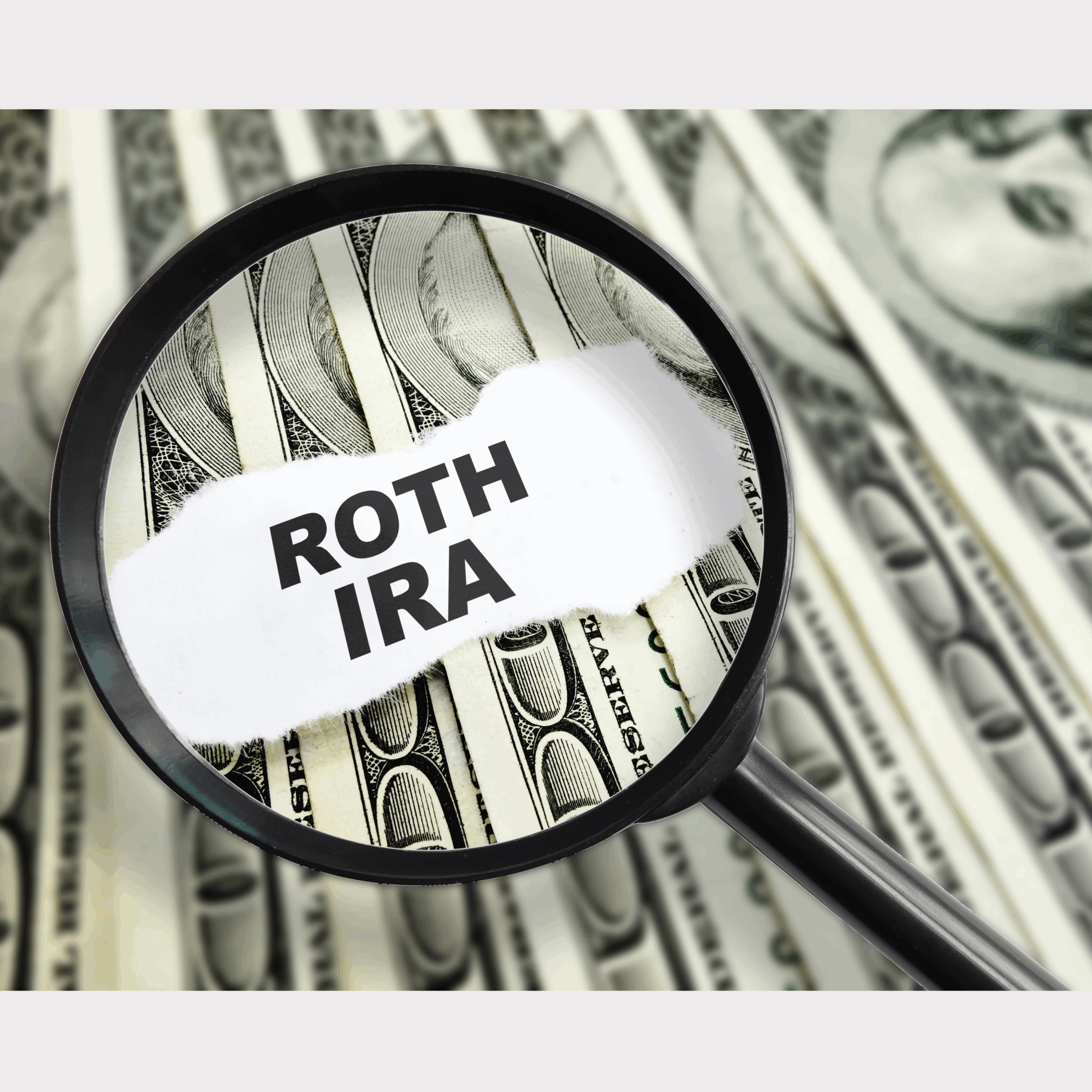A Roth IRA is one of the most powerful retirement accounts available. You contribute after tax dollars, invest, and then enjoy tax free growth and tax free withdrawals in retirement, as long as you follow a few of the IRS rules. It’s the dream combo: no taxes on the growth, and no taxes later when you actually need the money.
The catch? The IRS has income limits that prevent higher earners from contributing directly to a Roth IRA. Your eligibility is based on your Modified Adjusted Gross Income (MAGI), which includes salary, business income, investment income, and a bit more (minus certain deductions).
- Single & Married Filing Jointly Filers: Contributions start to phase out once your income crosses the IRS limit, depending on your filing status (check the most recent numbers here on the IRS website).
If your income is above these thresholds, you can’t contribute directly to a Roth IRA. High earners get phased out completely from contributing, which is frustrating when you’ve worked hard and want to maximize this tax free benefit.
But don’t worry, there are still strategies available to you to take advantage of the Roth tax free benefits.
The Backdoor Roth IRA Workaround
If you’ve ever heard the phrase “Backdoor Roth IRA,” it’s basically a workaround that allows high earners to contribute to a Roth even if they’re over the IRS income limits. So, it’s not a separate Roth IRA account, it’s simply a strategy used to get your money into the Roth and grow tax free for your future.
Here’s how it works:
- Open a Traditional IRA and make a non-deductible (after tax) contribution.
- Don’t invest it yet. Wait a couple days for the cash to settle.
- Convert that Traditional IRA into a new Roth IRA (if you don’t already have one) or into your existing Roth IRA. You made an after tax contribution, so in this example, when you do the conversion there is no need for you to withhold tax.
- Invest inside the Roth IRA and watch your money grow tax free for years to come.
- File IRS Form 8606 to record your after tax IRA contributions so that you won’t get hit with an unnecessary tax bill come tax time. Because you’ve already paid taxes on your contribution, the conversion itself generally doesn’t create another tax bill (unless the money earns income while waiting to convert).
This strategy might sound too good to be true, but it’s currently IRS approved and widely used by financial planners and high income earners to get more cash in a tax free growth vehicle!
Sounds simple, right? It is… but there’s one big caveat.
Watch Out for the IRS Pro Rata Rule
Here’s where I’ve seen a lot of people get tripped up: if you already have an existing Traditional IRA, SEP IRA, or Rollover IRA, the backdoor Roth strategy gets complicated because of the IRS pro rata rule.
The pro rata rule requires you to consider all of your pre tax IRA money when doing the conversion—not just the new after tax contribution you just made.
That means if you have a large Traditional, Rollover or SEP IRA sitting there from years of pre tax contributions, only a small portion of your backdoor Roth conversion will actually be tax free. The rest will be taxed based on the ratio of pre tax to after tax dollars across all your IRAs.
In plain English and not CPA talk: if you already have a Traditional or Rollover IRA, the backdoor Roth usually isn’t worth it because you’ll trigger taxes on most of the conversion.
Who the Backdoor Roth IRA Works Best For
The backdoor Roth IRA is most beneficial for:
- High earners who don’t already have a Traditional IRA, SEP IRA, or Rollover IRA.
- Those who want to take advantage of tax free growth for decades to come.
Will Backdoor Roth IRAs Always Be Allowed?
Lawmakers have tossed around the idea of closing the Backdoor Roth IRA strategy in past bills, but as of now, it’s still alive and well. Financial laws evolve, but historically, Congress doesn’t often make tax law changes retroactive.
Bottom line: if your income is too high for direct Roth contributions, using the backdoor strategy is one of the best ways to lock in tax free growth for your future.
My Takeaway
If I were a high earner with extra cash to invest, I wouldn’t wait. I’d use the backdoor Roth IRA strategy to contribute each year, convert it, and let that money compound tax free for decades.
At the end of the day, it’s not about “gaming the system.” It’s about understanding the rules and playing smart within them so you can maximize your long term wealth and not pay in more to taxes than you have to.
A Few Final *Important* Reminders
- Always tell your CPA about opting into the backdoor roth method and/or file IRS Form 8606 to document your after tax contributions so you don’t get double taxed from the conversion.
- Tax laws can change, so keep an eye on updates from Congress and whether or not this is still a IRS recognized loophole.
- And as always, your personal situation and peace of mind matters. If you’re curious if you’re doing the “right thing” with your money, it’s smart to talk to a financial expert or CPA about your options!
